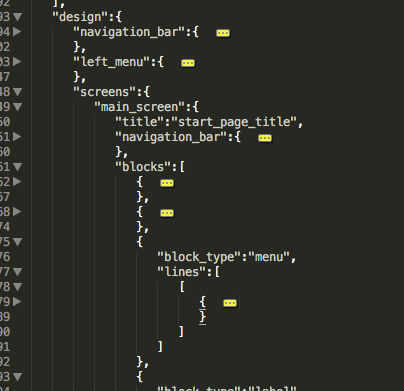Answer the question
In order to leave comments, you need to log in
What is the best way to store and modify json config?
There is a service for building applications, it takes a large json object with a lot of nesting as input: 
You need to somehow store such configs, change, add new parameters.
There was an idea to do everything in mysql because of my experience with it, creating labels: projects, projects_design, projects_design_screens, projects_design_screens_blocks, .., linking them together; but it seems that this is too inconvenient option and it's time to learn something new.
Now I'm considering mongo, but still I want to know the opinion and experience of the community before starting to make the foundation.
Answer the question
In order to leave comments, you need to log in
In monge, all this will be saved with one command, but the database is not selected for one narrow task.
This is a fairly high and good level of application configuration. From real life, look at maven or grunt, they have the same thing. Especially maven - the most they can squeeze out - a more convenient way to display XML, for example, in Eclipse or IDEA, so that it is easier to perceive the structure of the file. In addition, the mere presence of a configuration file already increases the level of perception of your application. I would not think about "programming" the configuration and decomposing its parameters in the database, because such an essence is precisely that such configs should be stored in one place, and not scatter values across tables, so that a separate process can be collected in this file, and even with errors, perhaps.
The modern version of MariaDB is capable of JSON in some form, plus MySQL 5.7 also has support for the format. And it would be quite useful to mention the "elephant" (PostgreSQL), which already supports a couple of versions of how stable JSON is, including creating indexes by fields inside such documents, etc. If the project is new, you can try the last option, it will be easier than using a completely different version of the database (the same mongu).
Didn't find what you were looking for?
Ask your questionAsk a Question
731 491 924 answers to any question